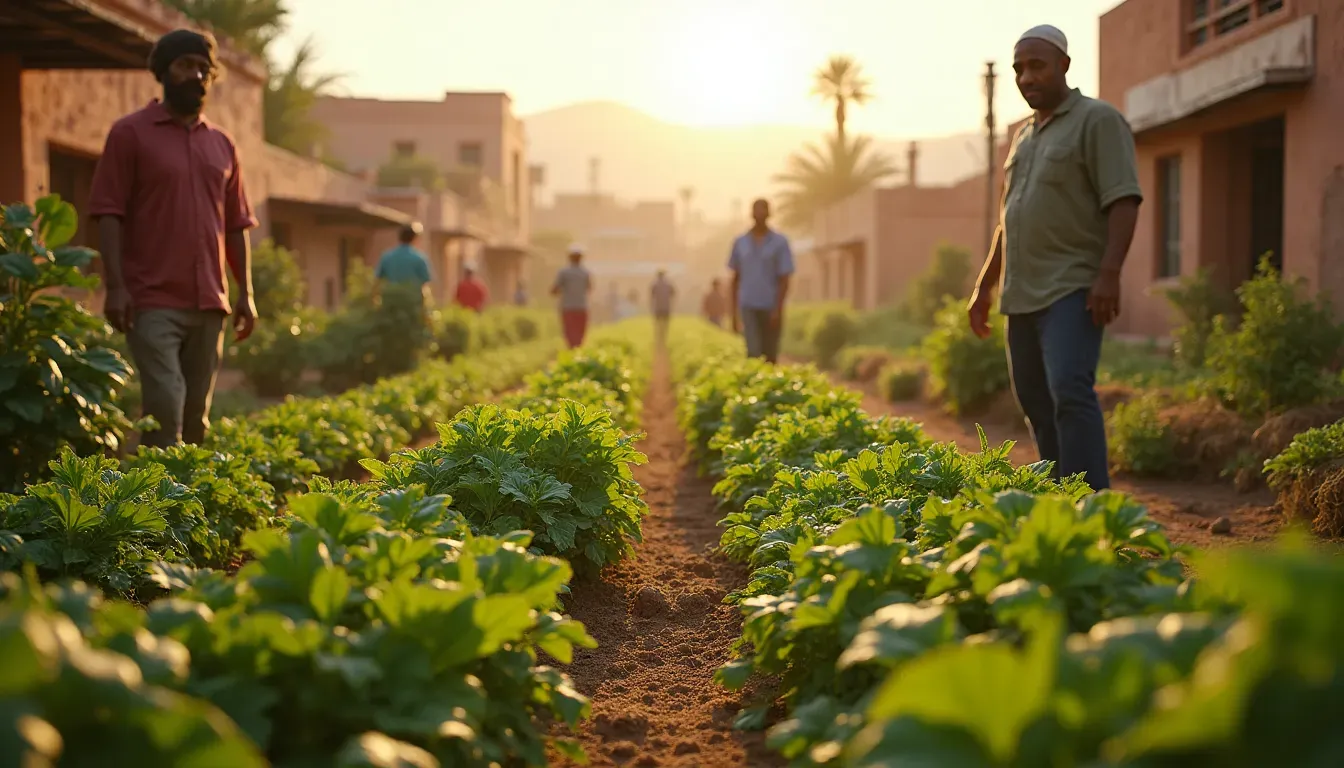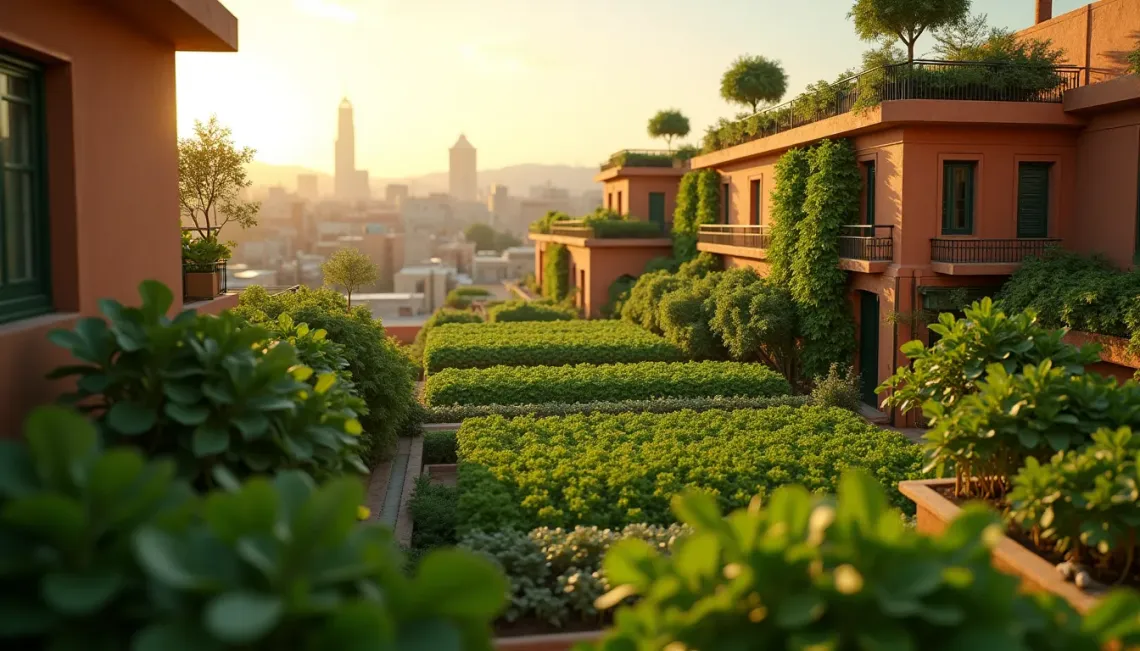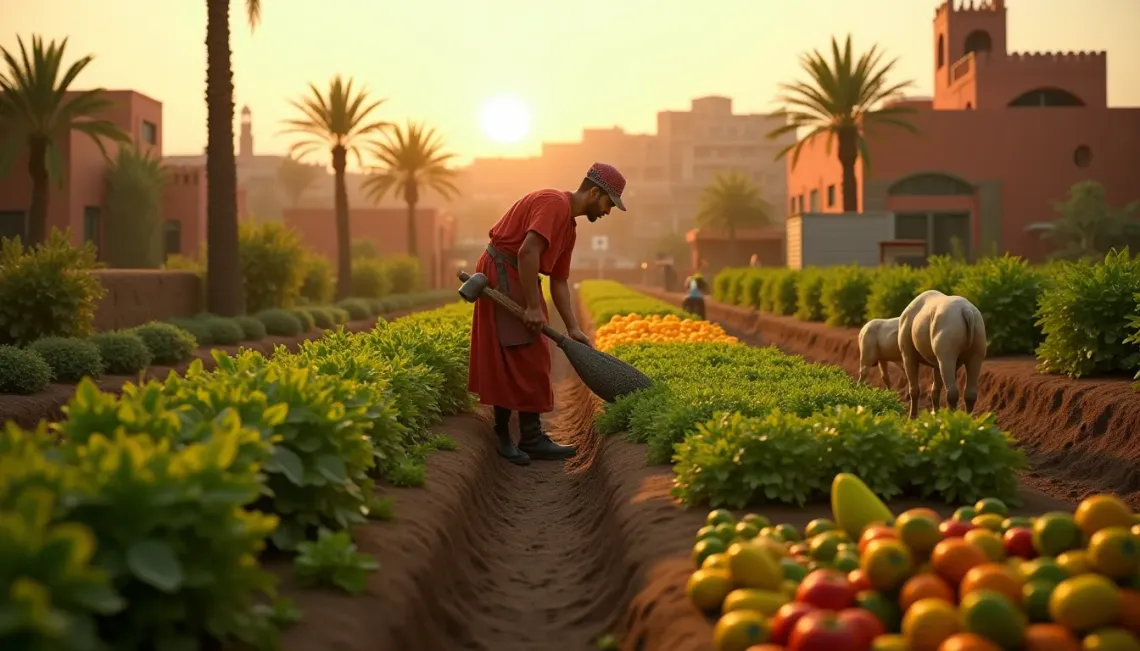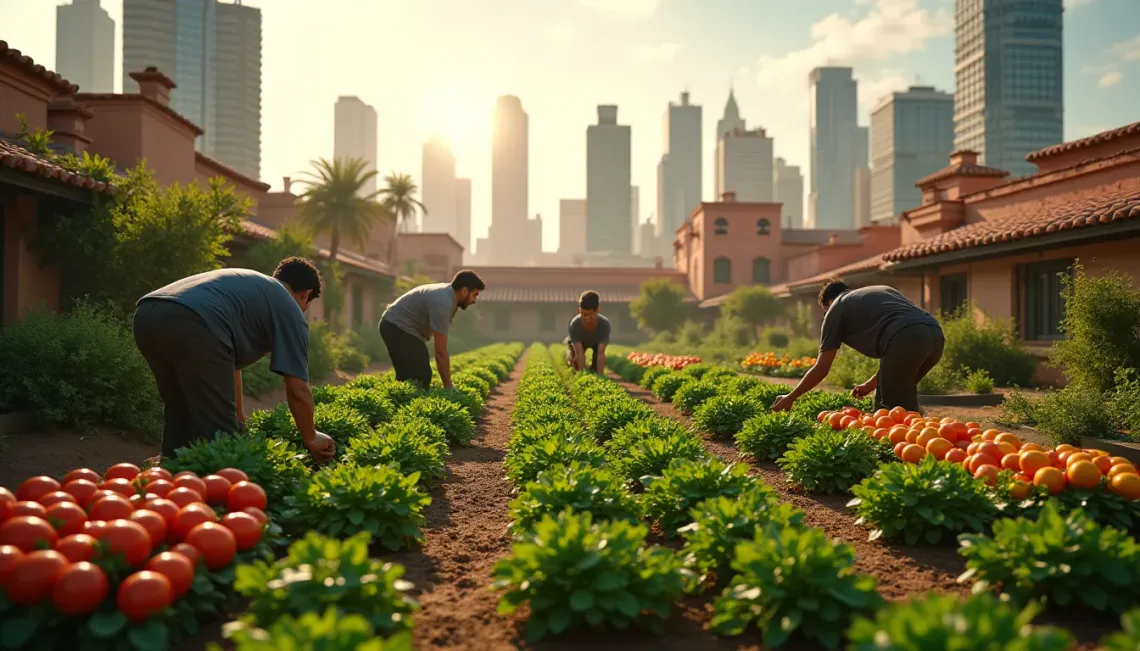Urban farming has emerged as a beacon of sustainable agriculture, transforming landscapes from Fez to Marrakech. These regions showcase incredible success stories that highlight innovation, community engagement, and environmental stewardship. As cities expand and the demand for fresh produce intensifies, urban farming becomes a pivotal solution, weaving a tapestry of growth and sustainability across Morocco.
Fez: A Blossoming Hub of Urban Farming
Fez has long been a city of cultural richness, but it's now gaining recognition for its contributions to urban farming. This city illustrates how sustainable agriculture can thrive in urban settings. Urban farmers here have created verdant oases amidst traditional architecture, redefining what sustainable living means in bustling environments.
Urban Farming Initiatives in Fez
- Community Gardens: Local residents have transformed vacant lots into flourishing community gardens. These spaces not only provide fresh produce but also serve as communal areas where knowledge about sustainable agriculture is shared.
- Rooftop Farms: Entrepreneurs and NGOs have turned rooftops into productive farming sites, utilizing hydroponic systems to grow a diverse range of crops year-round.
- School Projects: Educational institutions in Fez incorporate urban farming into their curricula, inspiring the next generation of urban farmers and promoting environmental stewardship from a young age.
These initiatives are more than just urban farming success stories; they are a testament to communal resilience and innovation, placing Fez at the forefront of sustainable agriculture.
Marrakech: From Red City to Green Haven
Marrakech, often referred to as the Red City for its vibrant ochre-hued buildings, is also carving its path as a leader in sustainable agriculture. Urban farming projects here are not only contributing to food security but also benefiting the local economy and fostering green living practices.
Success Stories in Marrakech
One exemplary story is that of a cooperative of women who started with a small urban garden. Today, they manage a thriving urban farm that supplies organic produce to local markets and restaurants, ensuring their story inspires others across Morocco.
- Eco-centers: These centers promote sustainable agriculture by offering workshops and resources, helping urban farmers enhance their practices and adopt new technologies.
- Vertical Farming: In the heart of Marrakech, vertical farms maximize space and resources, demonstrating how urban farming can adapt to limited urban areas.
Marrakech's commitment to urban farming is paving the way for future developments in sustainable agriculture, helping combat challenges such as urban sprawl and resource scarcity.
The Impact of Urban Farming Across Morocco
From Fez to Marrakech, urban farming is not only a tool for sustainable agriculture but also a driver of economic growth, community development, and environmental awareness. As these cities continue to innovate and share their urban farming success stories, the potential for scaling these models throughout Morocco becomes evident.
Urban farming initiatives in these cities also serve as a vital link to related fields such as renewable energy integration, waste management, and climate adaptation strategies. These aspects underscore the role of urban farming in establishing resilient and sustainable cities.
The success stories emerging from Fez and Marrakech illustrate the profound impact of urban farming, offering a blueprint for sustainable agriculture that can be replicated in other urban centers globally. As these stories continue to unfold, they enrich the narrative of urban farming as a powerful catalyst for change and sustainability.




